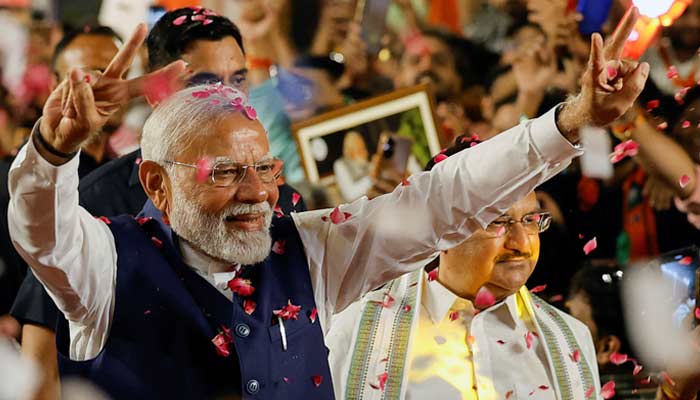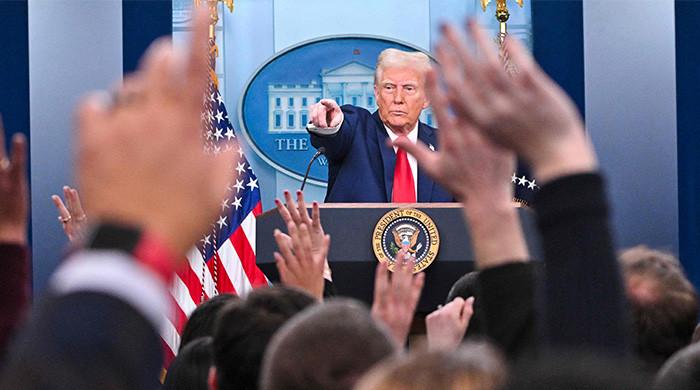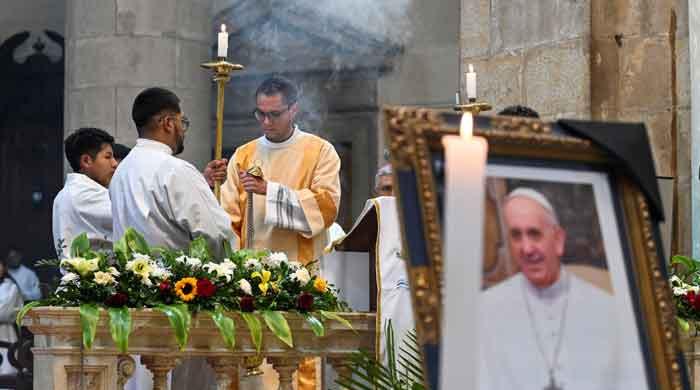No Muslim representation in Modi's new government
18th Indian Lok Sabha has 24 Muslim representatives out of 543 members and none belong to Modi's BJP
June 10, 2024

- Modi’s new council of ministers does not have any Muslims.
- Lok Sabha only has 24 Muslim representatives out of 543 members.
- Modi's govt includes 30 federal ministers and 41 state ministers.
India's humongous populace comprises a fair share of Muslims, but Prime Minister Narendra Modi's newly-elected government has no place for them, as not a single member of the community took oath in the grand oath-taking ceremony held in New Delhi on Sunday,
At the ceremony, Modi was sworn in for his third term as India's prime minister. But his government, which reportedly includes 30 federal ministers and 41 state ministers, does not have a single Muslim czar.
This is possibly due to the fact that no Muslims were elected from his Bharatiya Janata Party (BJP)-led National Democratic Alliance (NDA) in the recently-held general elections.
Since India’s independence, every newly elected council of ministers has had at least one Muslim representative. However, this is the first time that no Muslim MP has been elected.
The 18th Lok Sabha, also known as the lower parliament, has seen a drastic decrease in Muslim representation, as only 24 Muslims have been elected out of the total 543 members.
Out of which, 21 belong from the INDIA bloc and three are from India Majlis-e-Ittehadul Muslimeen.
The first meeting of the cabinet of the new central government of India will be held this evening, in which the cabinet will request the Indian President Droupadi Murmu to convene the parliamentary session soon.
In a shocking outcome, Modi this time did not win a clear majority as compared to his previous two times with the premier having to seek support from allies under the banner of National Democratic Alliance (NDA) to retain power.
The outcome is seen as a big setback to the popular leader as surveys and exit polls had predicted BJP would secure even more seats than in 2019.
A day earlier, President Murmu administered the oath of office to Modi during a grand ceremony at the Rashtrapati Bhavan, the president's palace in New Delhi, attended by thousands of dignitaries, including the leaders of seven regional countries, Bollywood stars and industrialists.
Modi, who started as a publicist of the Hindu nationalist Rashtriya Swayamsevak Sangh (RSS), the ideological parent of his BJP, is only the second person after independence leader Jawaharlal Nehru to serve a third straight term as prime minister.
Modi, whose election campaign was marked by religious rhetoric and criticism of the opposition for allegedly favouring India's 200 million minority Muslims, has adopted a more conciliatory tone since the shock result.
"We have won the majority ... but to run the country it is unanimity that is crucial ... we will strive for unanimity," he said on Friday after the NDA formally named him coalition head.











